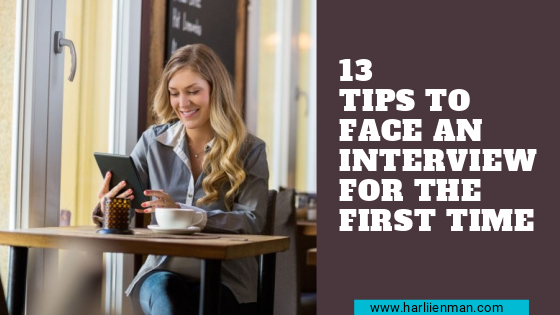OK, so you got an interview for your first job coming up and want to shine. With the overly competitive job market it is essential that you make the best possible first impression in the interview so you get hired.
Appearing for a job interview as a fresher for the very first time can be a nerve racking experience to say the least. While there is an excitement to be entering the corporate world there is also the fear of rejection.
Here are a few tips to face an interview for the first time as well as a few mistakes to avoid to help you ace your interview and land your first job.
Before the Interview
Research
Research the company’s vision, mission statement, products/services, their competitors from their website, social media, google etc. and use this information to connect your skills to the job description in the interview. By doing so you will be able to say confidently that you are a good fit for the company’s culture.
Prepare for some commonly asked questions
This includes questions like telling about yourself, your strengths and weaknesses, your goals, why they should hire you, how you came to know of the job etc. You can do research on the internet on these and other possible questions in an interview and prepare the answers.
Plan to Ask Questions
This is very important. Asking questions is as important as answering. By asking questions you not only demonstrate your sincere interest in the job but it can also be an opportunity for you to find out if this is an organization you want to work for. It is a good idea to make a list of three to five questions to ask. Good questions to ask could be about the skills for an ideal candidate for the job, the team you will be working with, the organization new products.
Maintain you social media presence
Nowadays it is common for recruiters to check the social media profiles of prospective candidates before calling them for interview. So be careful what you post on social media. Untag yourself from unprofessional Facebook posts. Do the same with twitter. Make an impressive LinkedIn profile to make strong professional connections.
Day of Interview
Be on Time
Plan to reach the venue at least 15 minutes before your scheduled interview time.You might not get the job if you arrive late, even if your performance in the interview was brilliant. It makes you look unprofessional. Figure out the route to the venue in advance and keep a buffer of at least half an hour in case you get stuck in traffic and get all your thing ready the night before.
Carry All Documents
This includes several copies of your resume (in case there is a panel of interviewers) , your academic documents (mark sheets and degrees) , internship certificates, recent passport size photographs and identity proofs.
Dress Appropriately
Appearance matters enormously, more so for interviews. The first look an interviewer takes at you determines a lot about what they think about you. “The First Impression is the last impression,” so wear your best formal clothes and look neat.
Maintain a positive body language
Studies have shown that people form fast impression based more on body language or Non-verbal communication than on actual verbal communication. Some non-verbal communication can ruin your chances of a job offer even if your answers to the questions are impressive.
During the Interview
Try to keep in mind that the interview is not an interrogation but rather an interaction between two people in the same field. Most interviews are ruined by anxiety more than anything else. So take a few deep breaths and relax before you enter the room. It always helps.
Greet the interviewer with a firm handshake
An interview is blown right from the beginning by an ineffective handshake. So don’t ruin your chances of getting the job with a bad handshake. Aim for a firm, but not bone-crushing handshake.
Maintain a positive body language
Studies have shown that people from fast impression based more on body or language or Non-verbal communication than on actual verbal communication. Some nonverbal communications mistakes can ruin your chances can ruin your chances of a job offer even if your answers to the questions are impressive. Most other skills can be included in the resume but non-verbal communication skills can only be demonstrated and observed in the interview. Maintain a steady eye-contact, smile and listen and nod when appropriate and keep an even tone when talking. And don’t slouch.
Don’t use “Umm” “Uh” etc. too much
It’s ok to use these sometimes but don’t use them too often as they make for sloppy presentation
Do not exaggerate, be negative about anything or anyone or lie
Highlight your Unique Selling Point
Know your unique selling point or any unique skill that you have that differentiates you from other candidates while answering the question “Why should we hire you” if it is asked. Examples could be your versatility, you could be team player or a quick learner or you could be having great negotiating skills.
After the interview
Don’t forget to send a Thank You note even if you are not hired. Tell them you are thankful for the opportunity and hope you will get selected.

